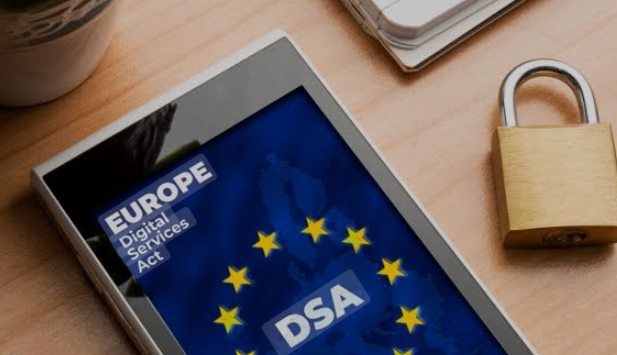by WorldTribune Staff, August 11, 2025 Real World News
The European Union’s move to regulate speech is chilling free expression and imposing burdensome restrictions on technology development, the Trump Administration said.
“In Europe, thousands are being convicted for the crime of criticizing their own governments,” the State Department posted to X, alongside a graphic criticizing the the EU’s Digital Services Act (DSA), adopted in 2022 to regulate online platforms such as social media networks, app stores, and content-sharing sites. “This Orwellian message won’t fool the United States. Censorship is not freedom.”
 By breaking with the globalist consensus on geopolitical, economic and cultural policy issues, the Administration is establishing a new context and ground rules for international relations that involve the United States.
By breaking with the globalist consensus on geopolitical, economic and cultural policy issues, the Administration is establishing a new context and ground rules for international relations that involve the United States.
Vice President JD Vance has been an outspoken critic of Europe’s speech and AI regulations.
Speaking at the Artificial Intelligence Action Summit in Paris earlier this year, Vance charged that the DSA forces tech companies to engage in heavy-handed content removal and misinformation policing.
“The AI future is not going to be won by hand-wringing about safety,” Vance said. “It will be won by building – from reliable power plants to the manufacturing facilities that can produce the chips of the future.”
Days later at the Munich Security Conference, Vance accused European leaders of using “Soviet-style” tactics to silence dissent. “It looks more and more like old, entrenched interests hiding behind ugly Soviet-era words like ‘misinformation’ and ‘disinformation,’ ” Vance said at the time, warning that such measures could be used to suppress political opposition.
Related: Trump’s AI executive order called ‘strategic breakthrough’ against toxic Big Tech bias , July 29, 2025
Secretary of State Marco Rubio defended Vance during a Face the Nation interview in February, rejecting claims that free speech rhetoric could be dangerous. “Why would our allies or anybody be irritated by free speech and by someone giving their opinion? We are, after all, democracies,” Rubio said.
Federal Communications Commission chief Brendan Carr has also weighed in, telling the Mobile World Congress in March that the DSA’s monitoring of online content is “incompatible with our free speech tradition.”
Last month, President Donald Trump signed three executive orders implementing his AI agenda. One measure bars the federal government from procuring AI systems infused with what the administration calls “partisan bias or ideological agendas,” explicitly naming critical race theory as an example.
“From now on, the US government will deal only with AI that pursues truth, fairness and strict impartiality,” Trump said.
Director of the White House Office of Science and Technology Policy Michael Kratsios said the U.S. will not follow Europe’s “innovation-killing regulatory path.”
“Federal agencies will now review their rules on the books and repeal those that hinder AI development and deployment across industries, from financial services and agriculture to health and transportation,” Kratsios said.
AI and crypto czar for the Trump administration David Sacks stressed that systems must remain “truth-seeking and trustworthy,” without pursuing “socially engineered agendas.”
In Europe, thousands are being convicted for the crime of criticizing their own governments. This Orwellian message won’t fool the United States. Censorship is not freedom. https://t.co/cWcZfeWl4L pic.twitter.com/kCDhaXCVkC
— Department of State (@StateDept) July 22, 2025
